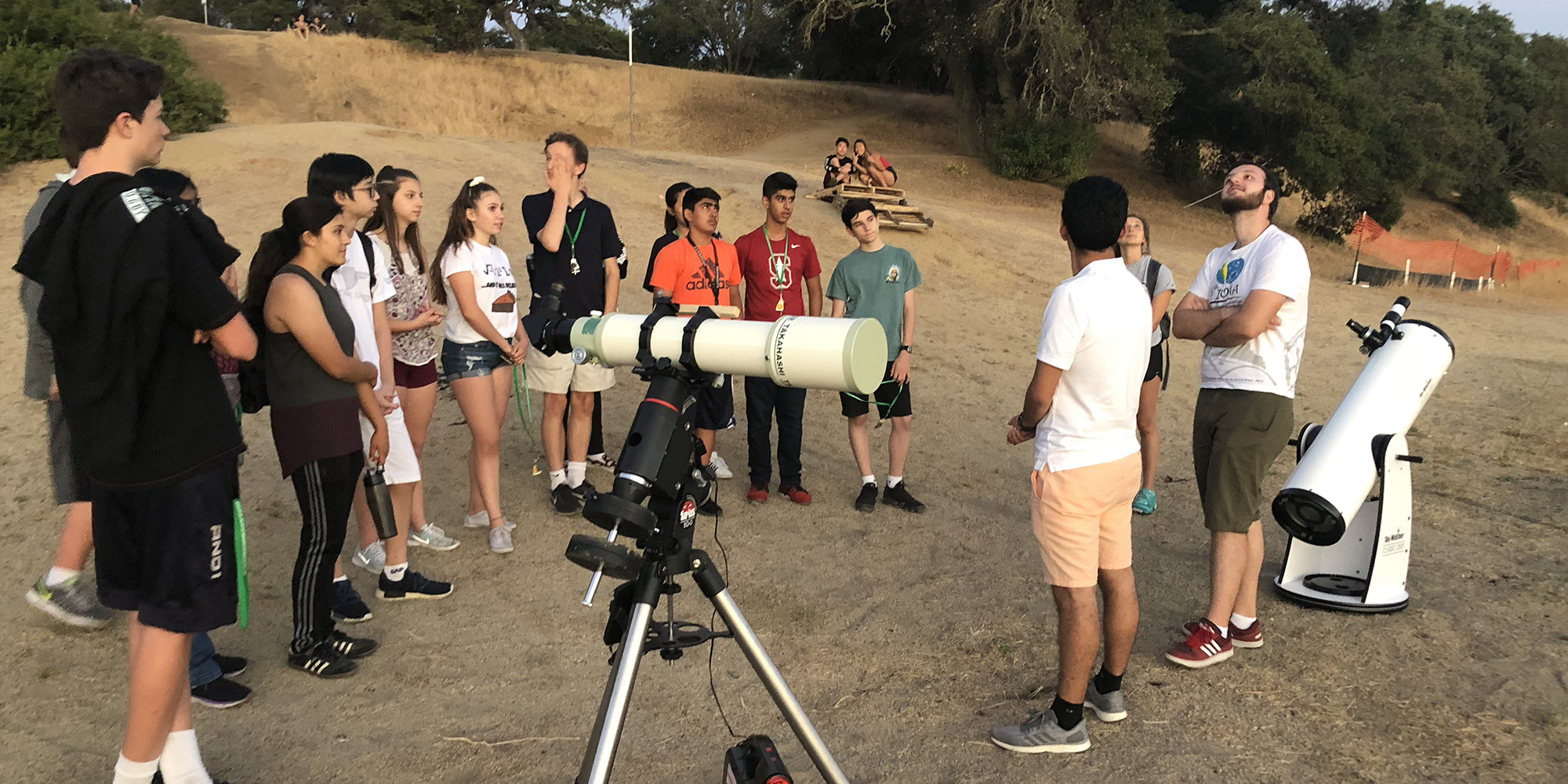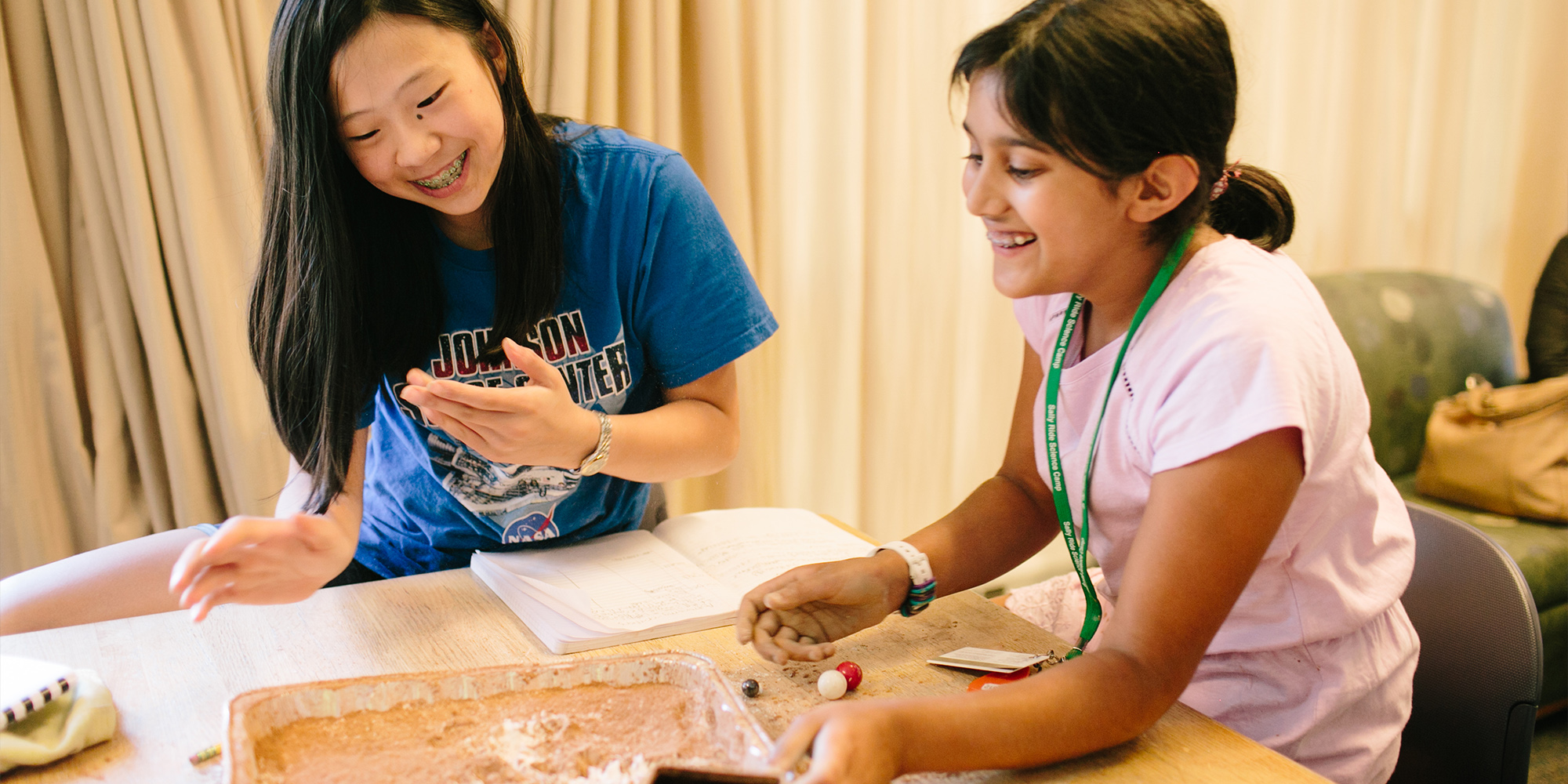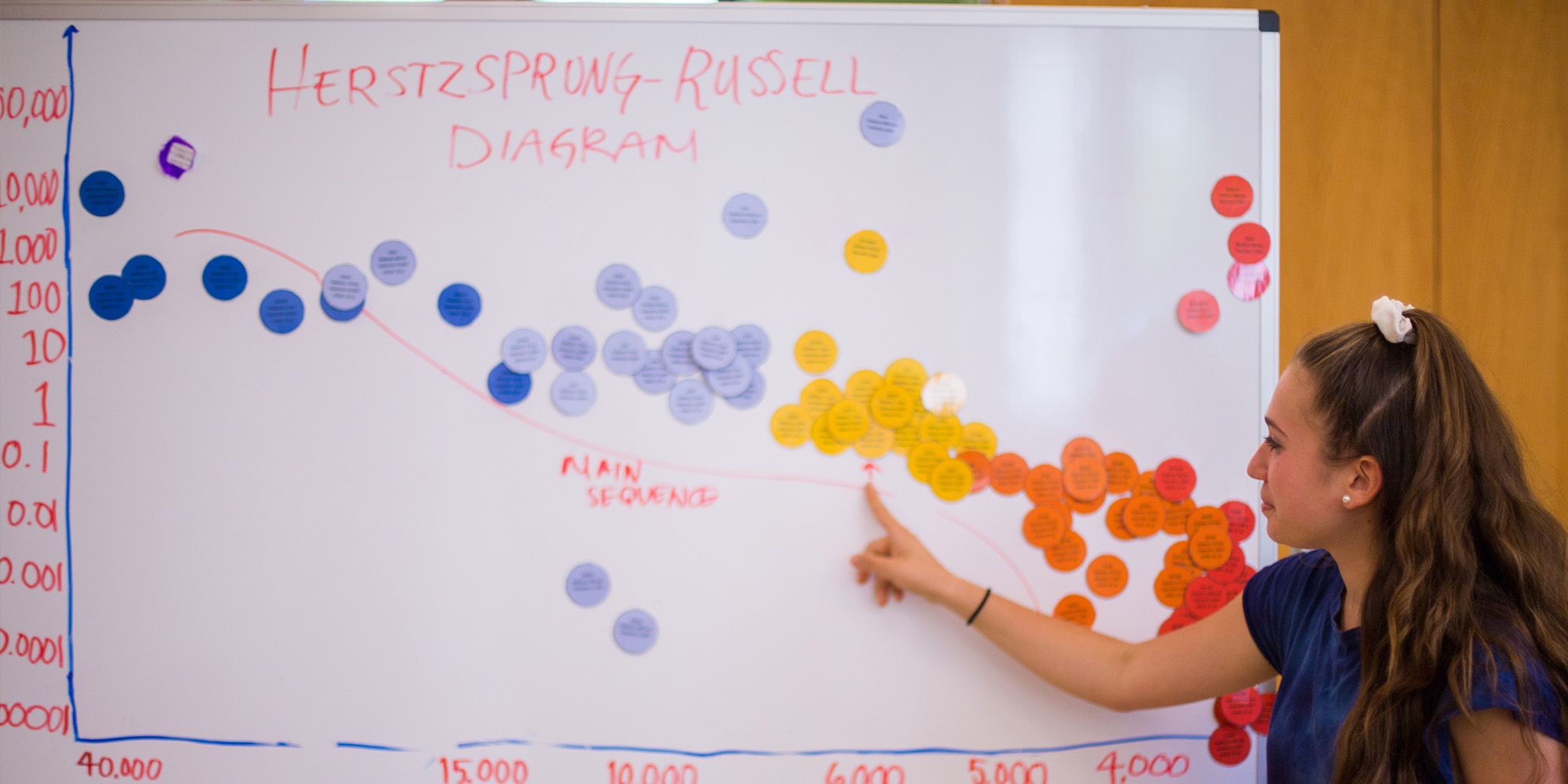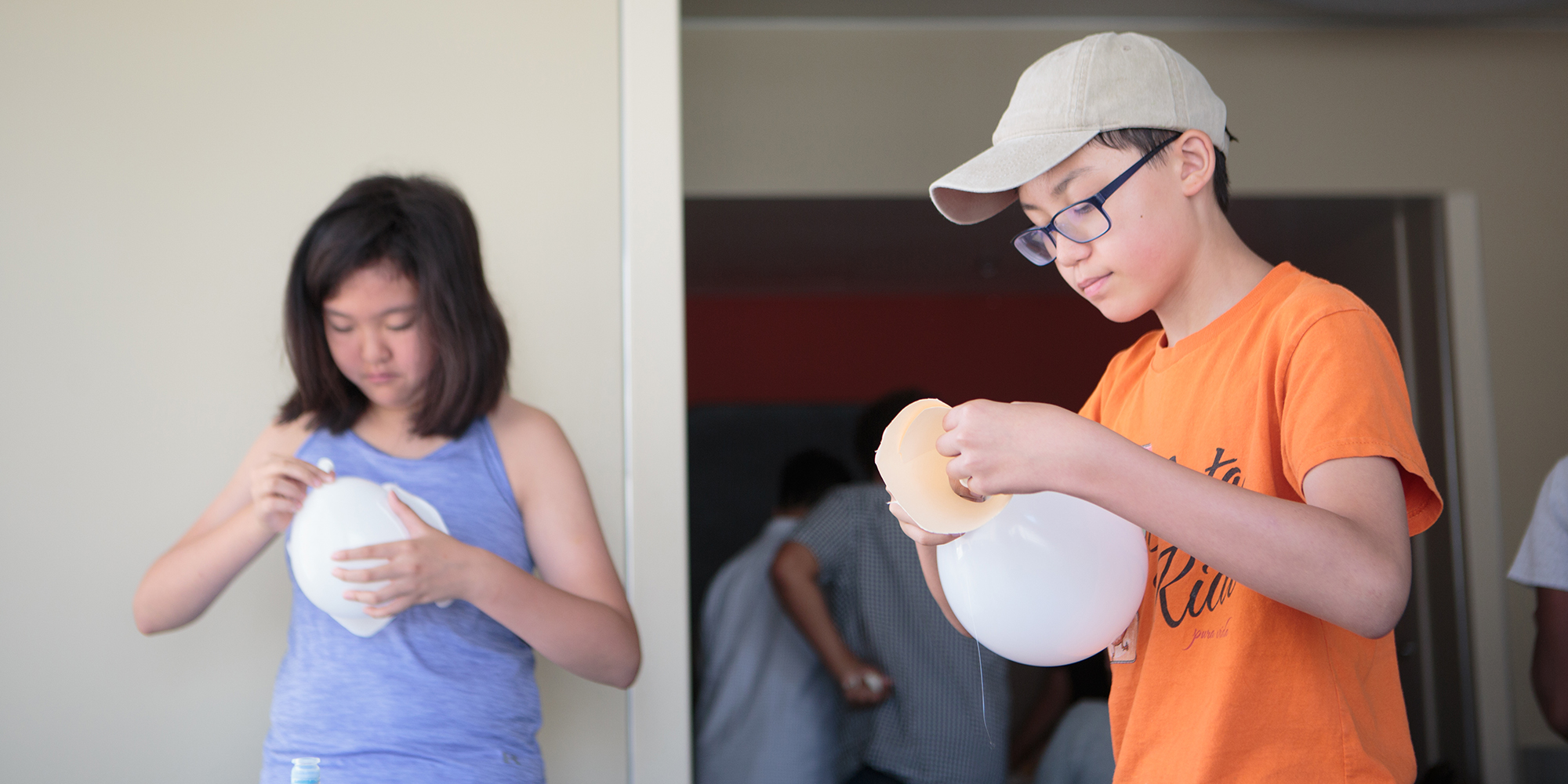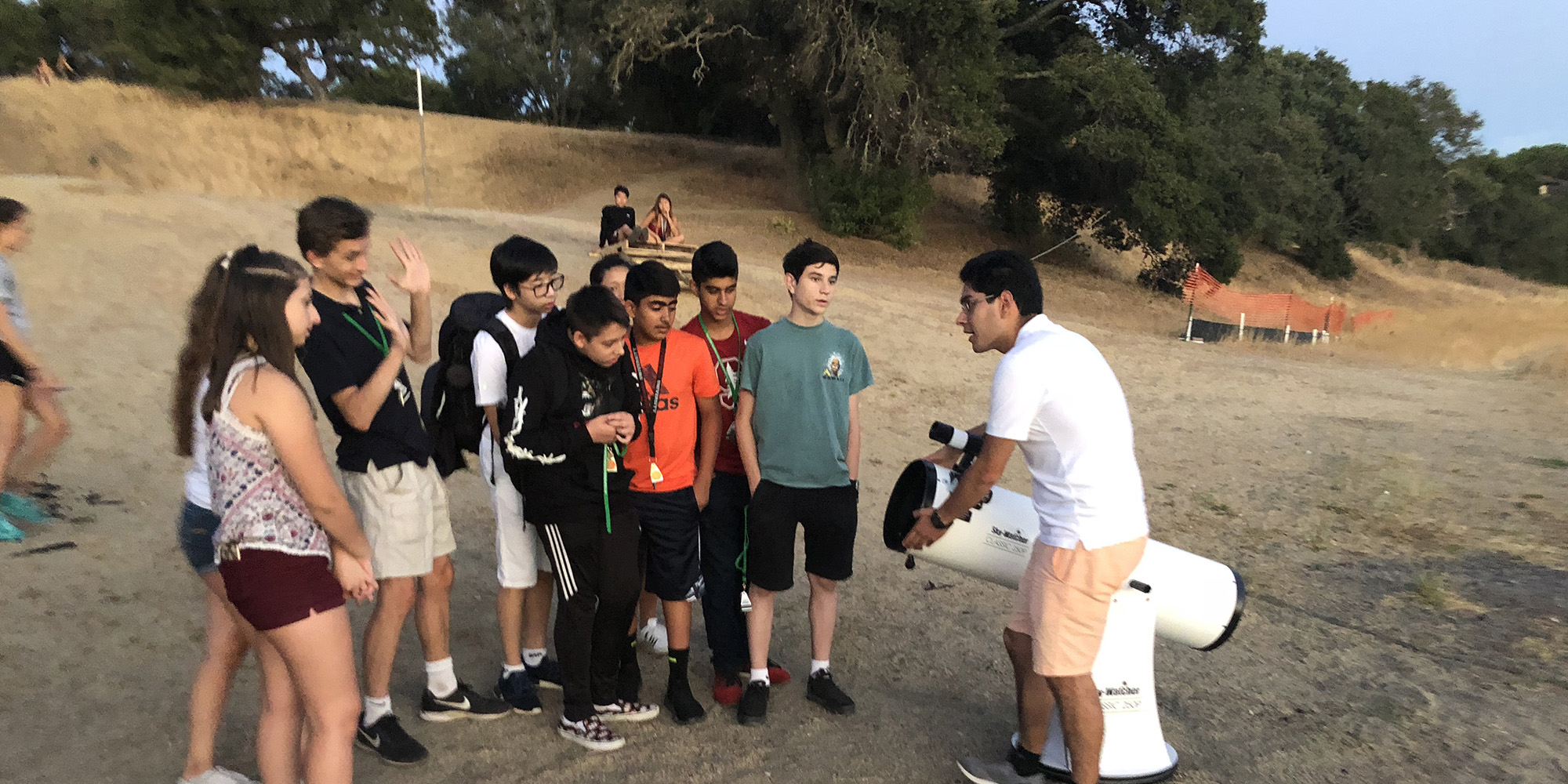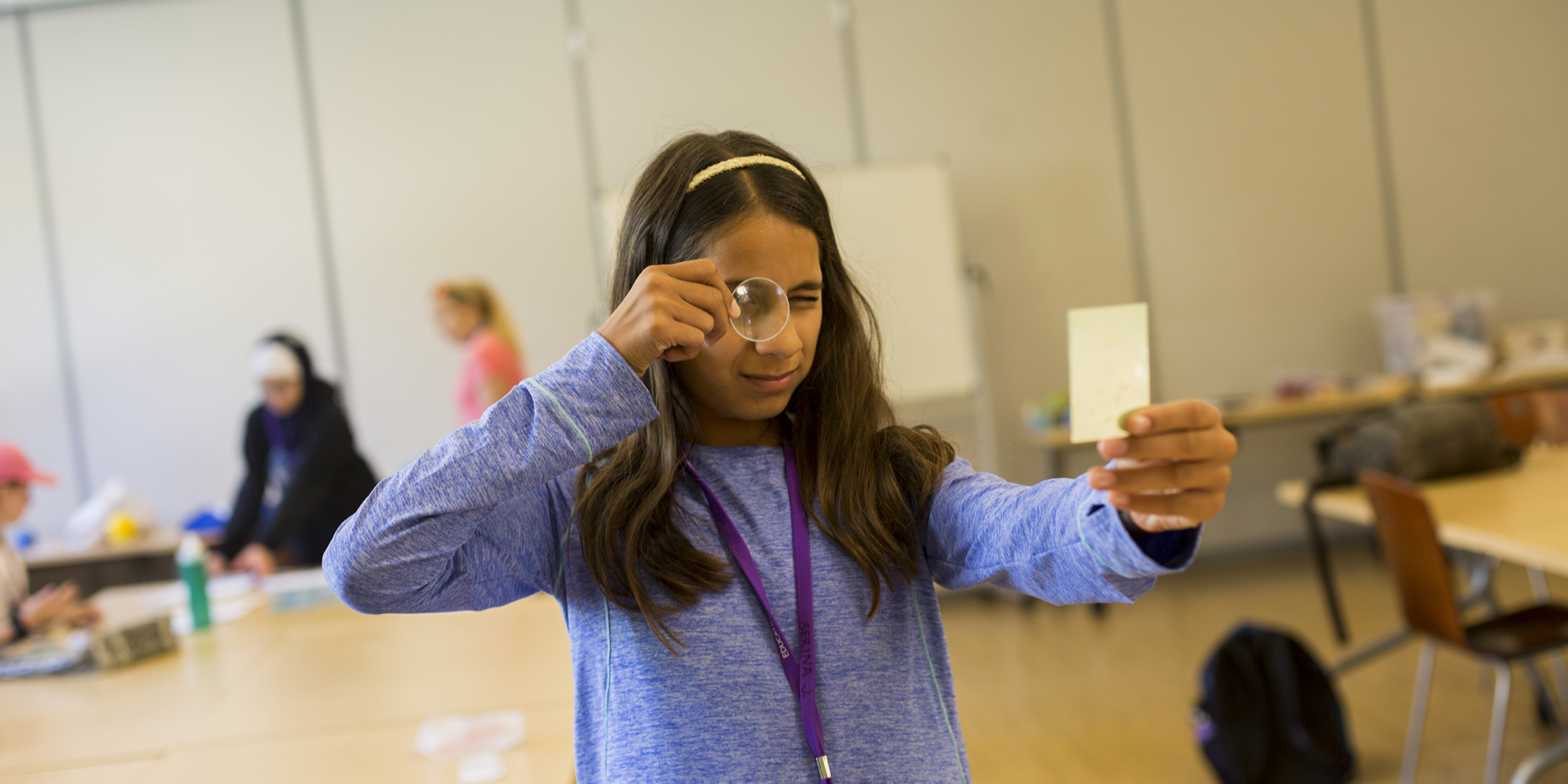In Intro to Astrophysics, students will learn about the origins of the universe and the physics of the cosmos. We will begin with structures like planets, stars and galaxies, and then explore tools that scientists use to understand how the universe works. Once we have grasped the basics, we can begin to consider astrophysical topics like relativity, dark matter and black holes! We will also investigate the wide range of careers in space, from astronauts to on-the-ground technical experts and researchers.
In response to the success of our high school astrophysics course, Education Unlimited is proud to introduce Intro to Astrophysics for our rising 6th to 8th graders!
Whether online or in person, Education Unlimited proudly offers top tier curriculum in our Intro to Astrophysics program! To learn more about our online program, click here.
This course will be interactive and often collaborative, as scientists rarely uncover the mysteries of the universe alone! As the physics of light is fundamental to astronomy, we will explore optics and spectroscopy through hands-on explorations and virtual labs. Fundamental rocketry and aerospace concepts will be highlighted as we discuss how humans have ventured beyond Earth. Students will make astronomical observations and learn how they can contribute to real-world research while still in middle school!
The week begins at the very start of our universe as students explore its foundational cosmic beginnings. From the Big Bang to stellar evolution, campers dive deep into brain-bending questions like "How big is space?" As the week continues on, students answer these principal questions through exploration of how we see into space itself, shedding light on the electromagnetic spectrum and learning about tools like Spectroscopy, which is the study of the absorption and emission of light and other radiation by matter. The week builds toward examination of relativity, black holes, and the remaining mysteries of the cosmos that scientists are trying to decode today.
Online camp Schedule for Introduction to Astrophysics
Click here for a downloadable information sheet.Don’t see a class you want in your time zone? Check other time zones to flexibly fit your needs!
| Program | Grades | Location | Start Date | End Date | Price Options | Register |
|---|
Don’t see a class you want in your time zone? Check other time zones to flexibly fit your needs!
| Click Here to View Sample ON-CAMPUS Schedule | Click Here to View Sample ONLINE Schedule |
Education Unlimited believes in small-group, immersive learning with subject matter experts and experienced teachers. We strive to provide industry-leading instruction to all of our students and hold all staff to the highest possible standards. Staff assignments vary by program and location. Some of our recent staff members for this program include:
Micol Chirstopher, PhD - Instructor
Dr. Micol Christopher received his undergraduate degree in Physics and Astronomy/Astrophysics at Harvard University where he graduated Summa Cum Laude. He subsequently completed a Ph.D. program in Astrophysics at the California Institute of Technology (Caltech) where his research focused on analyzing young star clusters both around the black hole at the center of our galaxy and in the colliding galaxy system known as the Antennae. Even from his time at Harvard, Micol knew that teaching was his true passion, so after Caltech, he began teaching Astronomy at Mt. San Antonio College, a two-year college in Walnut, California. He has been a tenured full-time professor there since 2006 and has taught introductory astronomy and astronomy lab classes to well over 2000 students. Micol also created online versions of both the introductory astronomy class and the astronomy lab class and has been teaching some classes online each semester since 2014. Micol absolutely loves teaching and the opportunity to share the passion that he has for astronomy and learning with all of his students. In his spare time, Micol enjoys outings and adventures with his young son, taking hikes in the Southern California mountains, traveling, and experiencing foods from all cultures.
Jesus Salas, PhD - Instructor
Dr. Salas is an instructor and researcher at UCLA, where he received both his master’s degree and his PhD in Astronomy and Astrophysics. His dissertation explored the dynamics of gas at the center of the Milky Way galaxy using fluid dynamics computations. He was awarded the prestigious NSF Graduate Researh Fellowship and the UCLA Eugene V Cota-Robles Fellowship. Prior to his time at UCLA, he earned his BS in Physics with a minor in Mathematics, graduating Summa Cum Laude from Texas A&M. Dr. Salas has taught a variety of undergraduate courses in astronomy and physics at UCLA, including developing and teaching an astrophysics undergraduate seminar. He also teaches science at the Harvard-Westlake. In addition to his teaching experience, Dr. Salas has been actively involved in scientific outreach, volunteering for UCLA’s “Exploring Your Universe” annual event and serving as Coordinator for the UCLA Planetarium.He has also published scientific papers in the field of astrophysics. Dr. Salas is bilingual in Spanish and English with proficiency in reading, speaking, and writing in both languages.
Allen B. Davis, PhD - Instructor
Dr. Allen B. Davis received his PhD in astrophysics from Yale University in 2021. His dissertation explored novel uses of statistical techniques to aid in the detection of potentially habitable exoplanets, and it presented the discovery of two new giant exoplanets detected by the TESS mission. Teaching is Dr. Davis's greatest professional passion. He has five years of experience teaching undergraduate astronomy students at Williams College and Yale University, and he has served as a full-time high school physics and math teacher at the International School of Boston for the past year. Dr. Davis loves incorporating astronomy into his classes wherever possible; he takes great pleasure in seeing his students light up as they come to understand complex topics when they are broken down and presented in an accessible way.
Gladys Velez Caicedo - Instructor
Gladys Velez Caicedo is an instructor in the Department of Physics at the Massachusetts Institute of Technology (MIT). A graduate of Columbia University in New York City, Gladys holds a Bachelor of Science degree in astronomy & physics. Gladys has conducted high energy particle astrophysics at various labs around the world, such as Nevis Laboratories and as part of the VERITAS collaboration. Gladys developed a passion for high school education during her college years. While at Columbia, she established the Columbia Education Studies Program in 2011, designed to give high school students wide-range access to university education. Gladys joined the Education Unlimited team in 2017. She has developed the curriculum for both the astrophysics and introduction to astrophysics programs.

